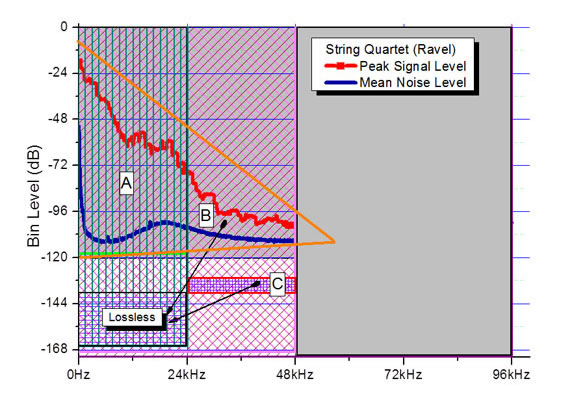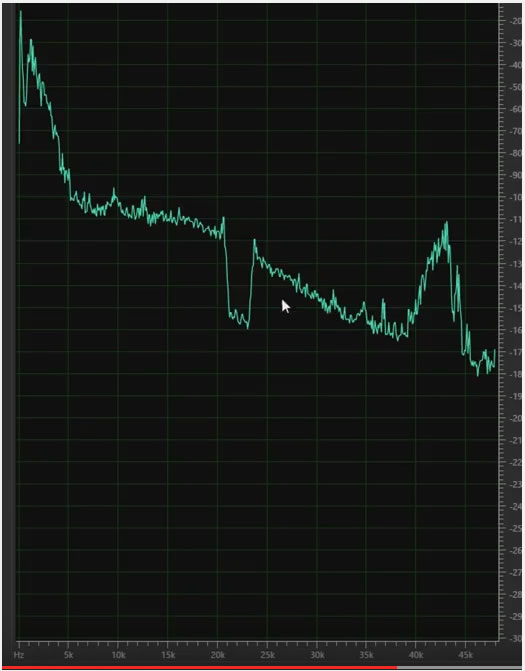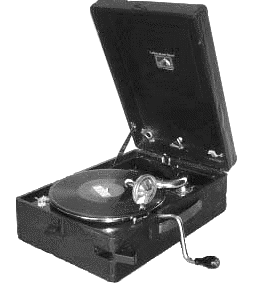- AccurateRip
- Acoustid
- AES/EBU
- AirPlay
- Amplifier
- aptX
- Audio file formats
- ASRC
- AVB
- Bit perfect jitter
- Bits: 16 or 24
- Bit perfect playback
- Bitrate
- Bluetooth
- Burn-in
- BWF
- Cables
- CDtext
- Chromecast
- Clipping
- Clock
- Codec
- Compression
- CRC
- Crossover
- Cue sheet
- DAC
- Damping
- DASH
- Digital
- Digital Room Correction
- Dither
- DLNA
- Drivers
- DoP
- DSP
- EBU R128 (loudness)
- FFT
- FireWire
- Freedb
- Gapless playback
- Generation loss
- HDMI
- Headphone listening
- Hearing
- Hires recording
- Homeplug
- I2S
- ID3
- Inter sample peak
- LDAC
- Linearity (DAC)
- Memory playback
- Music Server
- OCF
- OFC
- PCM
- Perception
- RAID
- ReplayGain
- Ripping
- RFI
- RIAA
- Router
- Sampling, up and over
- Sample Rate Conversion
- Speakers
- S/PDIF
- Storage
- Sync
- Tagging
- Toslink
- Transcoding
- UAA
- Units
- UPnP
- USB
- VST
- WiFi
- WiSA
MQA
Master Quality Authenticated (MQA) is a proprietary audio format.
It has been developed by Meridian Audio and launched in 2014.
Later MQA become an independent company.
In april 2023 MQA went into administration. This is the Britsch equivalent of Chapeter 11.
Tidal, who's hi-res is in this format announced to replace MQA with FLAC.
Looks like this will be the end of this audio format.
In september 2023 Lenbrook (NAD, PSB, Bluesound) announces the acquisition of MQA.
How it works
MQA does three things.
- Watermarking
- Lossy compression of Highres recording
- Upsampling combined with minimum phase filters.
Authenticated
There is a digital watermark allowing the decoder to detect if this is the MQA file as it left the studio or not.
Compression
It compresses Highres audio into a 24 bit / 44.1 or 48 kHz PCM format.
As the result is PCM, it can be treated like any PCM format.
It can be contained in any lossless format like WAV, FLAC, ALAC, etc.
The lossy compression is rather complex.

The frequencies in excess of 44/48 are compressed and stored below bit 17.
As a conseqiuence you won’t have the original 24 bit dynamic range.
The result is a 24 /44.1 or 48 kHz PCM audio file.
This can be played on any DAC with any media player supporting the 24 bit format.
The clever thing is that all what is stored below bit 16 appears as random noise.
To expand it to the original sample rate, a decoder is needed.
This can be implemented in software (media player) and/or in hardware (streamers).
Software is limited to what is called the first unfolding ( 88 / 96 kHz).
Only hardware not having a digital out is allowed to do the second unfolding (> 96 kHz).
This of course to prevent piracy.
Obvious you need a MQA enabled DAC to get the full result.
Time-domain
The other claim is that MQA can compensate for time-domain errors of both the AD converter used to make the recording and the DA converter used for playback.
This means that a DAC must be equipped with some additional hardware processing the audio and applying a specific algorithm tailor made for this specific DAC.
It implies that for each revision of the DAC, this as to be done anew.
The biggest advantage of MQA is probably the substantial compression of Highres.
If you run a streaming audio service like Tidal, Qobuz, etc. it saves dramatically on bandwidth compared with streaming Hires in its original size.
The downside is of course as it is a proprietary protocol; somebody has to pay the license.
In the end this of course will be the consumer.
Problems
As with all new technologies, weird problems do occur.
TDCatTech found a gap in the frequency spectrum.

MQA claims to be a lossy format saving bandwidth by throwing away data while maintaining perceptual transparency.
Exactly the same claim as made by MP3.
So MQA is highres MP3!
Master Quality Annihilated.
- High-Resolution Audio - A perspective - Bob Stuart
- Inside MQA - John Atkinson
- MQA (Master Quality Authenticated) Observations and The Big Picture... - Archimago's Musings
- MEASUREMENTS / IMPRESSIONS: Meridian Explorer2 Analogue Output - 24/192 PCM vs. Decoded MQA - Archimago's Musings
- IS MQA DOA? - John Siau - May 05, 2016
- MQA or "There and back again" - Jim Lesurf
- MQA and “Bit-Stacking” - Jim Lesurf
- MQA Time-domain Accuracy & Digital Audio Quality - Hugh Robjohns
- On "blurring" and why MQA probably worsens transient smearing - Archimago's Musings
- Truncating MQA files to 16 bits and the blue light still shines - FredericV
- MQA: A Review of controversies, concerns, and cautions - Computer Audiophile
- MQA explained: Everything you need to know about high-res audio - Andrew Harrison - 5/2/2017
- A Comparison of Clarity in MQA Encoded Files vs. Their Unprocessed State as Performed by Three Groups - Expert Listeners - Generale, Mariane; King, Richard; Martin, Denis (2018)
- MQA Deep Dive - I published tracks on Tidal to test MQA - GoldenOne (2021)
- MQA has gone into administration - What Hi*Fi

